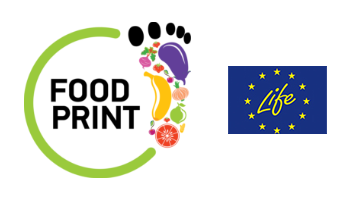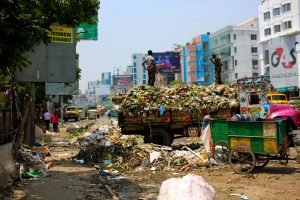They say “no” to freezing fruit and vegetables

Foodprint awareness campaign, 5th online food waste survey
Within the framework of the LIFE – FOODPRINT project “Awareness – raising campaign to prevent and manage food waste among consumers, the food and hospitality industries”, the 5th online survey on food waste was carried out, aiming to analyse the public’s views on food waste reduction strategies.
The survey was conducted online through Dias Group websites (Sigmalive, Sportime.com.cy, I love style, City.com.cy, Check In, Economy today, MyCyprusTravel.com) between 19/11/2021 and 26/11/2021. The sample for each question ranged from 716 to 930 people, depending on the response. A percentage of participants do not live in Cyprus. Each question gives alternative options for response. The survey explored the public’s food preservation/safeguarding habits in order to understand whether there are habits that can prevent food waste.
The analysis and description of the questions on food preservation/safeguarding is presented below.
How often do you keep fruit and vegetables in the freezer to avoid spoilage?
– Συνέχεια 21,30%
– Quite often 15,40%
– Medium to medium 8,80%
– Rarely 18,30%
– Never 36,20%
The highest response rates are at the two extremes. Specifically, the majority (36.2%) never adopt this method of storing fruits and vegetables and the next highest percentage (21.3%) stated that they “all the time” adopt this method of storage. We could conclude from these responses that this habit is not so widespread. If we compare the responses at the two extremes, 36.7% of respondents keep fruit and vegetables in the freezer “all the time” and “quite often”, while at the other extreme 54.5% adopt this habit “rarely” and “never”. It could be explored whether this is a habit that people are aware of and simply do not adopt, or whether the non-adoption of this habit has to do with ignorance. Certain types of food are widely known in Cyprus to be kept in the freezer, such as vine leaves, broccoli, carrots and olives, but with proper preparation many vegetables can also be kept in the freezer such as zucchini, green beans and tomatoes if they are heated. As for fruit, apples, bananas, grapes, oranges and more can be kept chopped and in freezer bags.
How well do you know the proper way to store food to maximize its shelf life?
– Very 15,00%
– Quite a lot 35,80%
– Somewhat 22,90%
– Not so much 13,60%
– Not at all 12,70%
As can be seen, responses are skewed towards “quite well” with the highest percentage of 35.8%, while another 15% responded “very well”. Only 12.7% answered “not at all” in this case. Overall, the results seem positive in terms of knowledge of ways to maximise the shelf life of food since 50.8% of respondents know “very well” and “quite well”, while only 26.3% know “not at all well” and “not so much”. Of course there are many ways of storing food and here the answer is subjective. What emerges more is people’s perception of themselves in relation to their knowledge on this topic. What we do not know and could be further analysed in this case is whether what people say they know are also their practical habits, which are adopted. Perhaps we are dealing here with one of those cases where self-statement differs from actual behavior, or intention differs from action.
The third question concerned the management of leftover food.
When you cook or order food do you think about what you will do with the leftover food?
– Yes, I know in advance what I will do with what is left over 64.80%
– No, I don’t think about it beforehand 35.20%
The results show that most respondents (64.8%) know in advance what they will do with leftover food, while on the contrary 35.2% of respondents do not think in advance what they will do with leftover food when they cook or order. This question explores whether people are concerned about food waste before they start cooking or ordering food, or whether they do not consider this issue at all. Of course, the answer does not determine whether the way in which leftovers are stored/disposed of will help to reduce wastage, but the fact that a higher proportion of respondents say that they are aware of this issue and are concerned about it from the outset increases the chances of reducing food waste.


